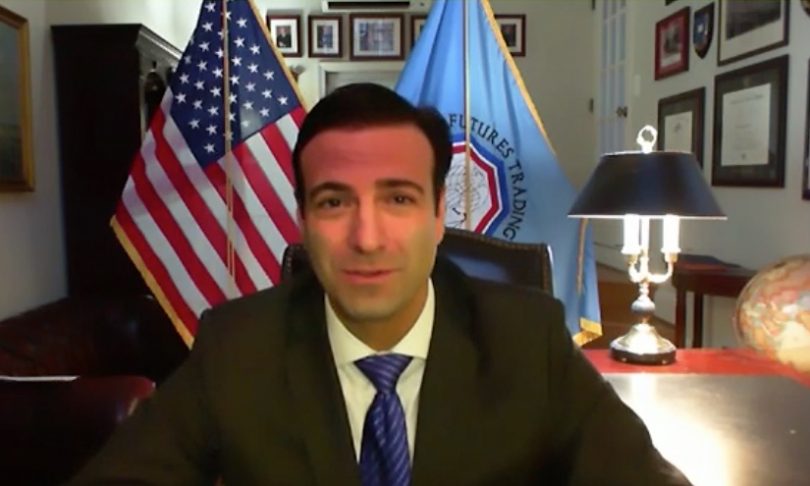Heath Tarbert, the U.S. Commodity Futures Trading Commission (CFTC) Chairman, is very positive about both blockchain and DeFi. He said that blockchain and distributed ledger technology (DLT) could “potentially revolutionize finance” and that DeFi represents a possible theoretical alternative to the ‘too big to fail’ centralized banks. But that doesn’t mean he thinks the sector should escape regulation.
Talking at last week’s OECD Global Blockchain Policy Forum, Tarbert appealed to innovators to engage with regulators early.” If you have a regulated industry, the chances of having market integrity and trust are there, and therefore at the end of the day it will benefit you,” said Tarbert.
He was surprisingly bullish on DeFi. Here’s what he had to say: “I look at DeFi and I am fascinated by it. For all of us that experienced the Global Financial Crisis, particularly the issue of banks and other financial institutions that were ‘too big to fail’ and that continue to stand at the center of the financial system, I would say that DeFi represents an interesting theoretical possibility of an alternative to that. Of a system where it’s not necessarily concentrated in a few global players but, as the term notes, decentralized. I would say that’s really fascinating and interesting.”
But he followed that up with the challenge of regulating it. To gain trust, he envisions DeFi protocols taking regulations into account and in turn, regulations evolving to take account of systems with a decentralized nature.
The challenges
Talking about blockchain and DLT more broadly, Tarbert highlighted four challenges: speed, flexibility, enforcement and international cooperation.
In terms of flexibility, he noted that the CFTC regulates derivatives, which are usually based on physical commodities. “A digital asset is very different from those types of commodities. And when we’re applying our regulations, we have to be thoughtful of that,” said Tarbert.
Over time various new products have arrived in the CFTC space, which Tarbert said were “viewed as fads or even disruptive and now they’re part of the mainstay. I really think when it comes to digital assets, it’s going to be the same thing.”
In terms of enforcement, he said it was important to weed out bad actions and bad actors, which ultimately establishes a market’s credibility.
Turning to international coordination, Tarbert credited Switzerland’s FINMA, which set up a regulatory college around Libra to engage the international community.
While regulators and nations have borders, financial markets rarely do, particularly digital assets. Hence the need for international coordination as is happening at the G20.
“We can’t have a sound regulatory regime for digital assets if the neighboring country or even a country 5,000 miles away doesn’t have that same regime,” said Tarbert. “You’re going to see these technologies move to the unregulated space and introduce trust issues.”






